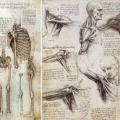363. Man of Discoveries: Girolamo Cardano
The polymath Girolamo Cardano explores medicine, mathematics, philosophy of mind, and the interpretation of dreams.
Themes:
• J.M. Forrester (trans.), The De Subtilitate of Girolamo Cardano, 2 vols (Tempe, AZ: 2013).
• J. Stoner (trans.), Girolamo Cardano: The Book of My Life (New York: 2002).
• T.R. Witmer (trans.), Girolamo Cardano: Ars Magna or The Rules of Algebra (New York: 1968).
---
• M. Baldi and G. Canziani (eds), Girolamo Cardano: Le opere, le fonti, la vita (Milano: 1999).
• M. Fierz, Girolamo Cardano, 1501-1576: Physician, Natural Philosopher, Mathematician, Astrologer, and Interpreter of Dreams (Boston: 1983).
• G. Giglioni, “Girolamo Cardano: University Student and Professor,” Renaissance Studies 27 (2013), 517-32.
• G. Giglioni, “Scaliger versus Cardano versus Scaliger,” in D.A. Lines et al. (eds), Forms of Conflict and Rivalries in Renaissance Europe (Bonn: 2015), 109-30.
• A. Grafton, Cardano’s Cosmos: The Worlds and Works of a Renaissance Astrologer (Cambridge, MA: 1999).
• A. Ingegno, Saggio sulla filosofia di Cardano (Firenze: 1980).
• I. Maclean, “Cardano’s Eclectic Psychology and its Critique by Julius Caesar Scaliger,” Vivarium 46 (2008), 392-417.
• O. Ore, Cardano: the Gambling Scholar (Princeton: 1953).
• E. Keßler (ed.), Girolamo Cardano: Philosoph, Naturforscher, Arzt (Wiesbaden: 1994).
• N. Siriasi, The Clock and the Mirror: Girolamo Cardano and Renaissance Medicine (Princeton: 1997).
Stanford Encyclopedia: Girolamo Cardano







Comments
Hegel and Sayre’s Law
It should be noted that there is an aphorism ascribed to Hegel (as per the Wikipedia entry on Historicism) that, "Philosophy is the history of philosophy". I believe this adds another dimension of credence to the podcast and its aims.
Regarding Dr. Grafton’s comment on Julius Scaliger’s savage book review, it is reminiscent (to me at least) of Sayre’s Law which states, "In any dispute the intensity of feeling is inversely proportional to the value of the issues at stake." And by way of corollary: "That is why academic politics are so bitter." ;)
(I of course do not mean to disparage Philosophy and its associated disputes in any form. Like I’ve said in the past, I love the show and value it and its subject matter greatly.)
In reply to Hegel and Sayre’s Law by Joel Goldenberg
Savage disputes
Quite - which in turn reminds me of an observation I heard at one point, that academic disputes over funding get more heated the less money is at stake.
I didn't know that Hegel said that by the way! I have been known to make the same rash claim, though not in print yet, so I am fascinated to hear that he said it first.
In reply to Hegel and Sayre’s Law by Joel Goldenberg
History of Philosophy
Regarding Hegel and his aphorism on the History of Philosophy, Leo Strauss, in his Philosophy and Law: Contributions to the Understanding of Maimonides and his Predecessors (p. 41), writes, “There is no inquiry into the history of philosophy that is not at the same time a philosophical inquiry”.
History of Philosophy
Hi Professor Adamson,
Why is it the western canon that you are sharing with us is located exclusively in the history books and not situated in our own lives? Making it a study of letters of imagined worlds and not a guide for life? This is a great source of despair I am sure not only for myself. If there is history of philosophy that studies past thoughts where is the equivalent of it for living in our world now? Something that would proceed not from opinions about philosophy but from the needs of the minds of men?
Nic
In reply to History of Philosophy by Nicholas Howlett
Our own lives
Well, I think that it depends a bit on the topic. For example, just as it happens, this very weekend the new episode will be an interview about Renaissance medicine, which sounds very "bookish" as a topic but one thing I talk about with the guest is how Renaissance medical approaches addressed themselves more to the particular needs of individual patients and so on - so there we talk directly about how the ideas compare to modern-day medical culture. Or if you think back to Hellenistic philosophy (or less far, to its revival in the Renaissance) there were very obvious ways that those ideas speak to our everyday concerns. This explains the "neo-Stoic" revival going on right now as a kind of self-help movement. However, you're right that my approach to the history of philosophy does not go out of its way to demonstrate the applicability or relevance of these older texts to immediate and urgent concerns that people might have nowadays. That is partially because I am hoping the listeners can make that connection themselves, but also because I just don't think this is only the measure of what was interesting in history of philosophy. I mean, me telling you about something like the epistemological background of Galileo's scientific discoveries (to mention the topic I am reading up on just at the moment) is not going to make your day-to-day life very different, I guess, but it is still interesting. I think if what you want is a podcast focusing more on the practical upshot of philosophy for us here and now, then there are other series that would take that much narrower approach (which I say not as a criticism, just an observation that it is only one thing you can get out of the history of philosophy).
Cardan suspension and Cardan shaft
When you say Cardano (at least here in Czechia) the first thing which comes to mind is the Cardan suspension and the Cardan's shaft. It is pitty you haven't mentioned them. Is it a gap? :)
In reply to Cardan suspension and Cardan shaft by Matěj Cepl
Cardan(o)
Wow, that's neat! I did not know about it. I would argue it isn't a gap since this is a history of philosophy podcast, not a history of science podcast. Besides, given that Cardano claimed to have made literally thousands of discoveries, I couldn't possibly have mentioned them all! But thanks for bringing it to attention.
In reply to Cardan(o) by Peter Adamson
What is HoPwaG all about?
Well, but that's the question, isn't? What is the philosophy in this series? In terms of the hard core philosophy (metaphysics, noetics, ethics), I don't think there is much Cardano could be remembered, is there? On the other hand, what he is really remembered until today (and he is exceptional in this sense, who really cares about Pico della Mirandola or Marsilio Ficino these days unless he is a historian of philosophy?) is the Cardan's Joint and the Cardan’s Formula. And if this series is not just about the core philosophy, but more (History of Thinking?) then I think these apply.
In reply to What is HoPwaG all about? by Matěj Cepl
What's it all about?
Well, I usually cover topics in history of science insofar as I can relate them to things like epistemology, natural philosophy, etc. Obviously it is a little bit arbitrary which things I mention and which I don't, and no doubt I could have found a way to talk about the things you mentioned just as I talked about his work on probability. But I really don't have the ambition to catalogue exhaustively various ideas and breakthroughs in the history of science or mathematics; that would be a whole other podcast and not one I would be qualified to produce!
In reply to What's it all about? by Peter Adamson
Not everything
Yes, of course, I can completely understand that nobody is truly Renaissance thinker these days to know everything about everything (and I wonder whether such mythical creature actually ever existed), and yes of course we are influenced by our biases (so I am not saying how much more theory of law, ethics, and theory of justice I would love to hear; yes, of course, you couldn't ignore Gratian and thanks for that). However, ask your mathematics-endowed relatives what is the first thing they think when you say Cardano, and it made sad you haven't mentioned it during the whole episode just on him. Yes, we have all our biases.
In reply to Not everything by Matěj Cepl
Cardan Cubic
Actually, the thing Cardan is best known for in mathematics is popularizing an existing solution to the cubic and quartic. In Ars Magna, Cardan even explicitly states he did not come up with the solutions (he credits Tartaglia and Ferrari respectively). If he wanted to cover the history of mathematics, he would have been better off covering Regiomontanus anyways.
For that matter, on the mechanical, I don't believe there is any evidence the cardan joint was made by him, and the cardan ring likely wasn't invented by him either.
In reply to Cardan Cubic by Alexander Johnson
Cubic
Oh and actually I did mention that, albeit more to illustrate evolving ideas about originality than to explain the math.
In reply to Cardan Cubic by Alexander Johnson
Veritasium introduction to the Cardano and irrational numbers
Just for the explanation for even very little mathematically inclined, there is a nice video explaining this Cardano’s history. https://youtu.be/cUzklzVXJwo
Fabulously good video on the origin of complex numbers!
Matej, thank you for the link to the video. Wow, is that video well done. I've not had a math course in more than 40 years, and this video reminded me how much I loved math "back in the day" and how much I still love history. That video is one of the best I have seen on any topic. I'm going to watch additional videos by that fellow.
Add new comment